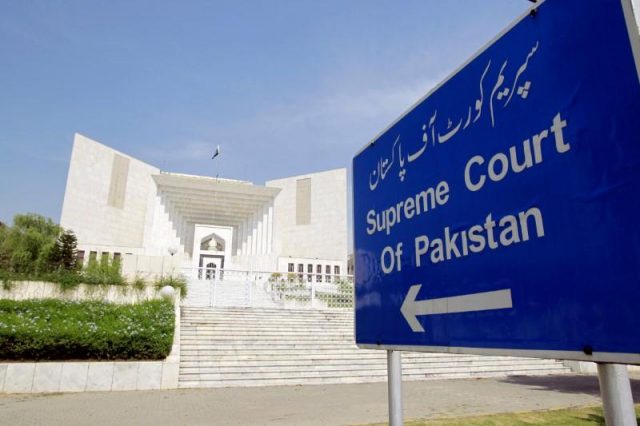The Supreme Court (SC) hearing on the presidential reference regarding open ballot polling in the upcoming Senate elections reconvened on Thursday, wherein Attorney General for Pakistan (AGP) Khalid Jawed Khan reiterated that the federal government was seeking the interpretation of Article 226.
The large bench comprised Chief Justice of Pakistan (CJP) Gulzar Ahmed, Justice Mushir Alam, Justice Umar Ata Bandial, Justice Ijazul Ahsan and Justice Yahya Afridi. The AGP’s statement was in reply to the questions from the earlier hearing.
Justice Afridi asked the AGP: “Why we should give you opinion when the issue is political in nature?”
The apex court observed: “If one does not follow the party, its dishonesty and breach of trust.” The court has also questioned the presidential reference seeking its opinion on holding Senate elections though an open ballot and observed that being a political matter; the government should have approached the parliament for making an amendment to the Constitution instead of moving the court.
“Every country has a supreme court or a constitutional court to interpret constitutional matters,” replied the attorney general, adding that the apex court had ruled 23 years ago that decisions should be made without distinguishing between political and non-political questions.
“In many countries, including Bangladesh, India, Sri Lanka and the United States, the Supreme Court interprets the Constitution in constitutional and political matters,” he added.
The attorney general maintained that the upcoming Senate elections are held according to the Election Act, 2017 and not the Constitution. “This is why the government has approached the Supreme Court to get its opinion on the matter.”
The AGP further claimed that the government had field the instant reference for promoting transparency and accountability in the electoral process, acknowledge respect for the choice of citizen voters.
The bench also inquired into what the law entails regarding the composition of the Senate for elections and about the voting process itself.
To the first point AGP Khan said, the composition of the Senate has been mentioned in the Constitution, and the procedure is given in the Election Act, 2017.
Regarding the voting process, he explained “Chapter 7 of the Election Act, 2017 gives the full procedure”.
Justice Ahsan noted: “There are 26 sections in the Act that deal with Senate elections.”
He then inquired when the government does not raise the matter of secret ballots for the election for minority seats, then why the method is used for Senate elections.
During the hearing, the chief justice noted that India has opted for open balloting and has clarified the entire procedure.
Replying to a question by Justice Bandial on the difference between secret and open balloting, the AGP explained: “The only difference is that in open balloting, the name of the voter is written on the back of the ballot paper. The purpose is to find out which member voted for whom.”























